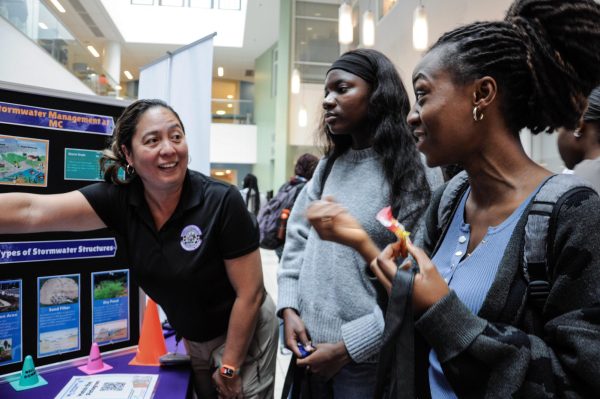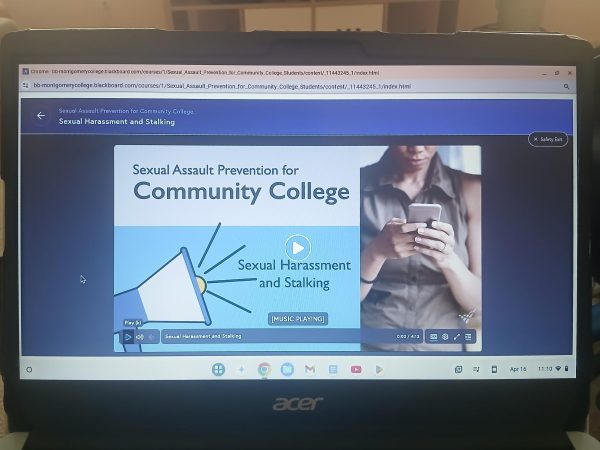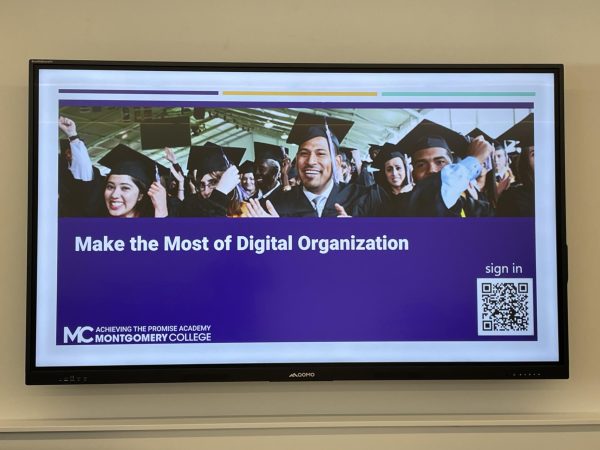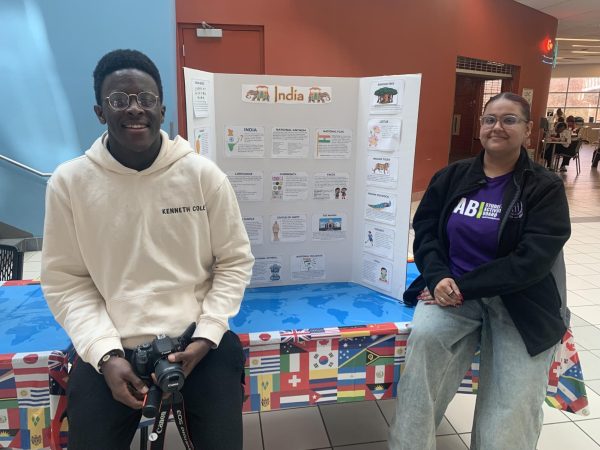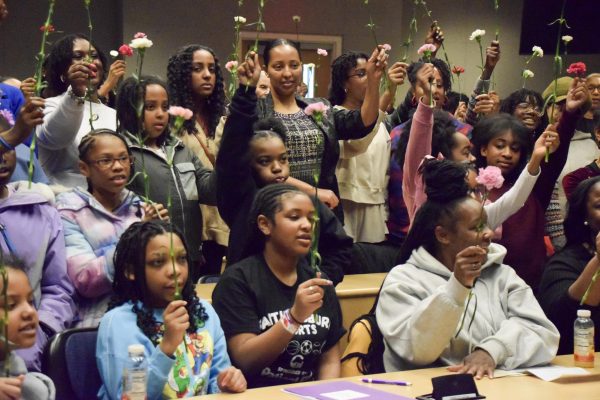MC Event Draws Attention to Colorism
Dr. Ufuoma Abiola of the New School, NYC, encourages people of color to educate themselves and others about the still-relevant issue of colorism
From an early age, children of all races absorb and internalize a belief that lighter skin tone is associated with beauty, moral goodness, and intelligence—and that dark skin represents the opposite traits.
That was the eye-opening message of a Montgomery College event drawing attention to colorism—discrimination and prejudice based on skin tone—hosted last Tuesday, attended by many dozens of MC students, faculty, and professors.
The MC event, billed “A Conversation about Blacks,” welcomed Dr. Ufuoma Abiola, a senior administrator at The New School in New York City and co-author of a 2016 paper, “Colorism within the HBCUs,” to give a presentation on the issue of colorism.
According to Dr. Abiola, colorism “frequently occurs independently of racism,” and is expressed as a general preference for light skin tones. Colorism is frequently perpetrated and propagated within the African American community, where assumptions are made about the character of people based on the lightness or darkness of their skin.
Many social and economic statistics, Dr Abiola said, demonstrate that colorism remains pervasive in American society today. Dark-skinned African Americans are more likely to earn less money, to be pulled over by the police, to receive longer jail sentences for the same crime, and to be suspended from school.
She pointed to a 2019 study, “The Gender of Colorism,” which concludes that skin tone still has a substantial influence on income within the African American community.
In the twentieth century, ‘respectable’ Black organizations would sometimes discriminate against dark-skinned Black Americans by denying them entry to or membership in certain social clubs, churches, and fraternal organizations.
Dr. Abiola stressed the necessity to raise awareness of the problem of colorism through education and open conversations. She pointed to workshops, seminars and trainings as a way to challenge prejudices that people may not even know they hold.
In the Q&A portion of the event, many MC staff and students described their own experiences with colorism, including those who had grown up outside the United States.
Some staff members described using skin-whitening products, which are often highly damaging to skin. Others recalled stories from participating in or being subjected to bullying based on skin tone in high school.
Dr. Abiola expressed some optimism based on the increased awareness of colorism as an issue compared to in the past. However, in the words of one MC faculty member, recalling his own experiences decades ago, there is still a long way to go: “It still hasn’t really changed.”
Harry is studying for an associate's degree in civil engineering at Montgomery College. He takes a keen interest in technology, the environment and international politics. Before attending Montgomery College, he spent three years working as a middle-grade English teacher. In his spare time, he loves cycling and playing soccer, and his main life goal is to own at least two dogs.




